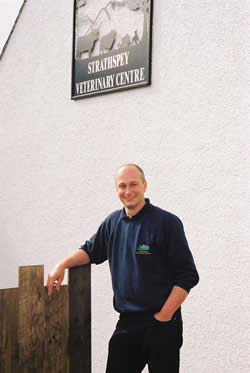
Suckler farmers planning autumn housing should not overlook spring-born calves as the stress of housing, weaning and moving can substantially increase the threat of pneumonia, warns vet Andrew Rafferty of Strathspey Vets, Grantown on Spey in the Highlands.
"Although these animals may be between three and seven months old, some of the key pneumonia viruses and bacteria can still have a devastating effect if allowed to take hold," he says. "RSV, in particular, is probably the most common problem we see in this group of stock. Infection progresses very quickly and, in the worst cases, the calf may die within 24 hours."
Mannheimia (Pasteurella) haemolytica and RSV are the main threats to younger calves, and although the viruses may often act as a door opener, the pasteurella bacteria can quickly take hold with serious consequences. And, given that most calves carry the bacteria on their tonsils anyway and can succumb to infection during times of stress, the value of selecting a vaccine such as Bovipast RSP which is capable of protecting against the key viruses and bacteria is clear. In older animals, farmers may also need to consider the risk of IBR, and add an additional vaccine to the health regime.
"With many calves being born just prior to spring turnout, or while their dams are out at grass, it is not always easy to gather them together to administer the two vaccinations that are needed to confer pneumonia protection," Mr Rafferty adds.
"As a result, many spring or summer-born suckler calves won't have been vaccinated. However, the stress they will go through at housing will be considerable, and the threat will increase substantially," he says. "For example, we have clients who will wean at the same time and calves may also be sold on, or put in completely different groups, all adding to stress levels.
"In order to get over this, and to ensure stock is protected during this high risk period, we recommend that clients gather animals together a month before housing for their first vaccination," Mr Rafferty explains. "This could be timed to coincide with other preventative treatments such as worming or lice control. They can then have their second dose at housing."
